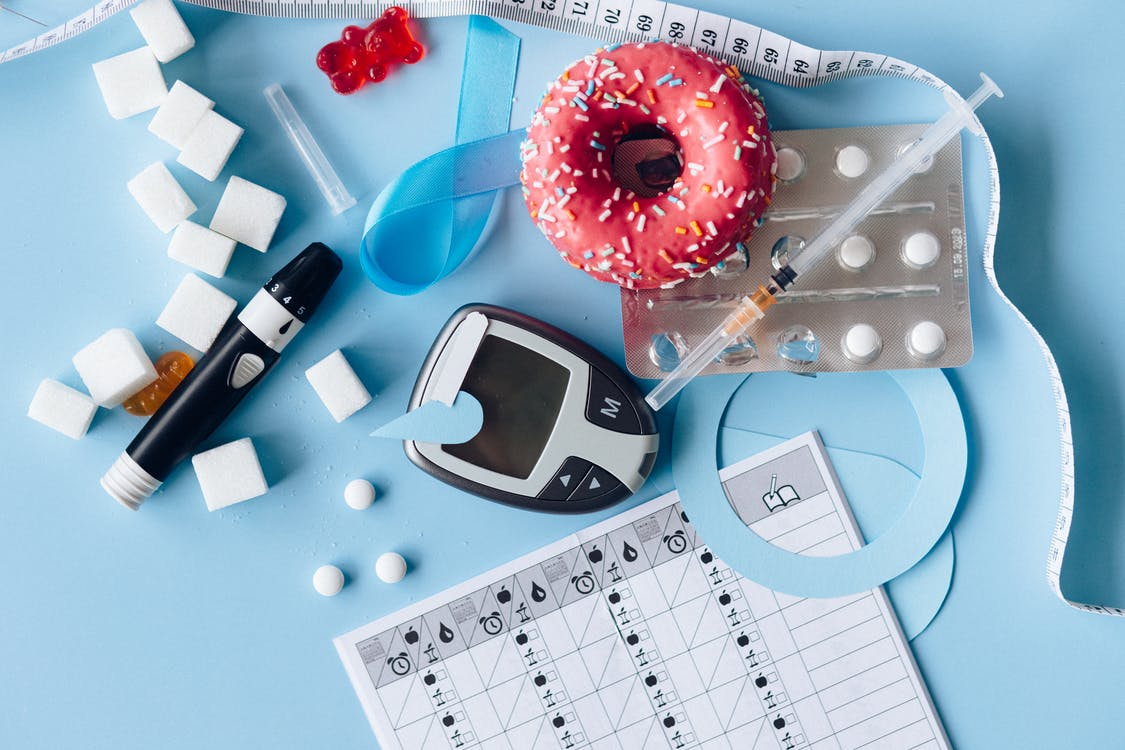Health
Glucose Variability: Why Is It Important?

Glucose variability, also called glycemic variability, is the change in blood sugar levels throughout the day. Glucose variability predicts hypoglycemia and hyperglycemia in type 1 and 2 diabetes.
It is also related to mortality in non-diabetic patients in the ICU. Let us learn more about the importance of glucose variability and its impact.
What Is Glucose Variability?
Glucose variability refers to the oscillations in blood glucose levels. It means that glucose fluctuation and other parameters for glucose homeostasis over time are called glycemic variability.
Optimal Amount of Variability
The average glucose excursion for someone who doesn’t have diabetes or obesity is between 26 to 29 mg/dL. In comparison, a non-diabetic obese person may have a higher range approaching up to 50 ml/dL, which is extremely high variability.
The optimal blood glucose levels should not exceed 110 mg/dL after a meal. This should not be more than 30 mg/dL from pre-meal levels.
The average postprandial glucose peak in people without diagnosed metabolic dysfunction is 99 mg/dL with a plus or minus 10 mg/dL range which is less than the recommended 140 mg/dL.
Another study found that most non-diabetic people spent 96% of their time between 80 to 140 mg/dL.
Why Do Blood Glucose Levels Vary?
There are numerous reasons for the variability in blood glucose levels. However, some factors cause high sugar levels in diabetic patients. This condition is called hyperglycemia.
Here are some of the factors that result in a bloodstream sugar spike.
- Dehydration
- Hormonal changes
- Infections
- Injury or surgery
- Food intake
- Incorrect medications
- Skipping medicines that lower blood sugar levels
- Stress
Emotional and physical stress also release hormones that cause high blood glucose levels. Besides this, menopause and menstrual periods also cause hormonal imbalance that affects blood glucose levels.
Regular blood glucose testing helps detect glucose variability, allowing your healthcare professional to record your diabetes and help you manage it accordingly.
If you experience hyperglycemia, you must immediately consult your doctor to control blood glucose levels as adverse changes are detrimental to health. Additionally you can check Klinio supplements review to lower your cholesterol.
The Importance of Glucose Variability
Normal fluctuation in our blood glucose levels happens throughout the day. However, factors such as mood, stress, sleep, and food intake can result in a minor fall or rise in blood sugar levels.
This glycemic variability is expected because our body is processing glucose. But the degree of variability matters.
High glucose variability over time can cause numerous health problems. Glucose variability is a predictor of hypoglycemia.
It is also an indicator of severe hypoglycemia in type 1 diabetes and identifies non-severe hypoglycemia in type 2 diabetes. There is a close relationship between high glucose variability and oxidative stress.
Moreover, macrovascular and microvascular complications of diabetes can also arise. Therefore, optimal change in glycemic variability is vital for preventing future cardiovascular events. Therefore, low glucose variability is essential for optimal health.
What Causes High Variability?
Our diet impacts blood glucose levels. For example, eating food with added sugar or a high carbohydrate level causes a sudden increase in our blood sugar levels. It shows up as a sharp spike in our glucose line.
A spike in blood glucose levels releases insulin in our bodies. Insulin is a hormone that controls the movement of glucose into our cells. Cells utilize this glucose for energy.
Sometimes, our body releases excess insulin to overcome the sugar spike. Unfortunately, when excess insulin is released, it results in a blood glucose crash.
Some factors such as intense exercise also cause a sharp fall and rise in blood glucose levels.
Why Should We Avoid High Glucose Variability?
Frequent spikes in our blood glucose levels and insulin surges cause significant health problems. These include insulin resistance.
Frequent blood sugar crashes cause immediate effects such as anxiety, depression, and fatigue. But variability itself causes detrimental health effects over the long term.
Subsequent spikes in insulin and blood glucose levels can cause damage to tissues. Extreme glycemic variability is also linked to diabetes, cardiovascular disease, and metabolic dysfunction.
According to a 2018 study, 16 out of 20 people with normal glucose levels experienced severe glucose spikes after a meal. These levels almost reached a prediabetic range about 15% of the time.
High glucose variability also indicates insulin resistance as your body cannot efficiently use insulin to control blood glucose. This is the root cause of metabolic dysfunction.
Unfortunately, standard blood glucose tests cannot capture glycemic variability. Therefore, you need a glucose monitor to detect high variability of blood sugar levels.
Conclusion
You must eat meals at regular intervals to avoid high glucose variability. A reduced intake of added sugar and carbohydrate can maintain stable glucose levels. In addition, some lifestyle factors such as reduced stress and frequent exercise can control your blood sugar levels.
Long-term glucose trends are important for your overall health. Therefore you must aim to have stable glucose levels for more days instead of having frequent high glycemic variability.

















